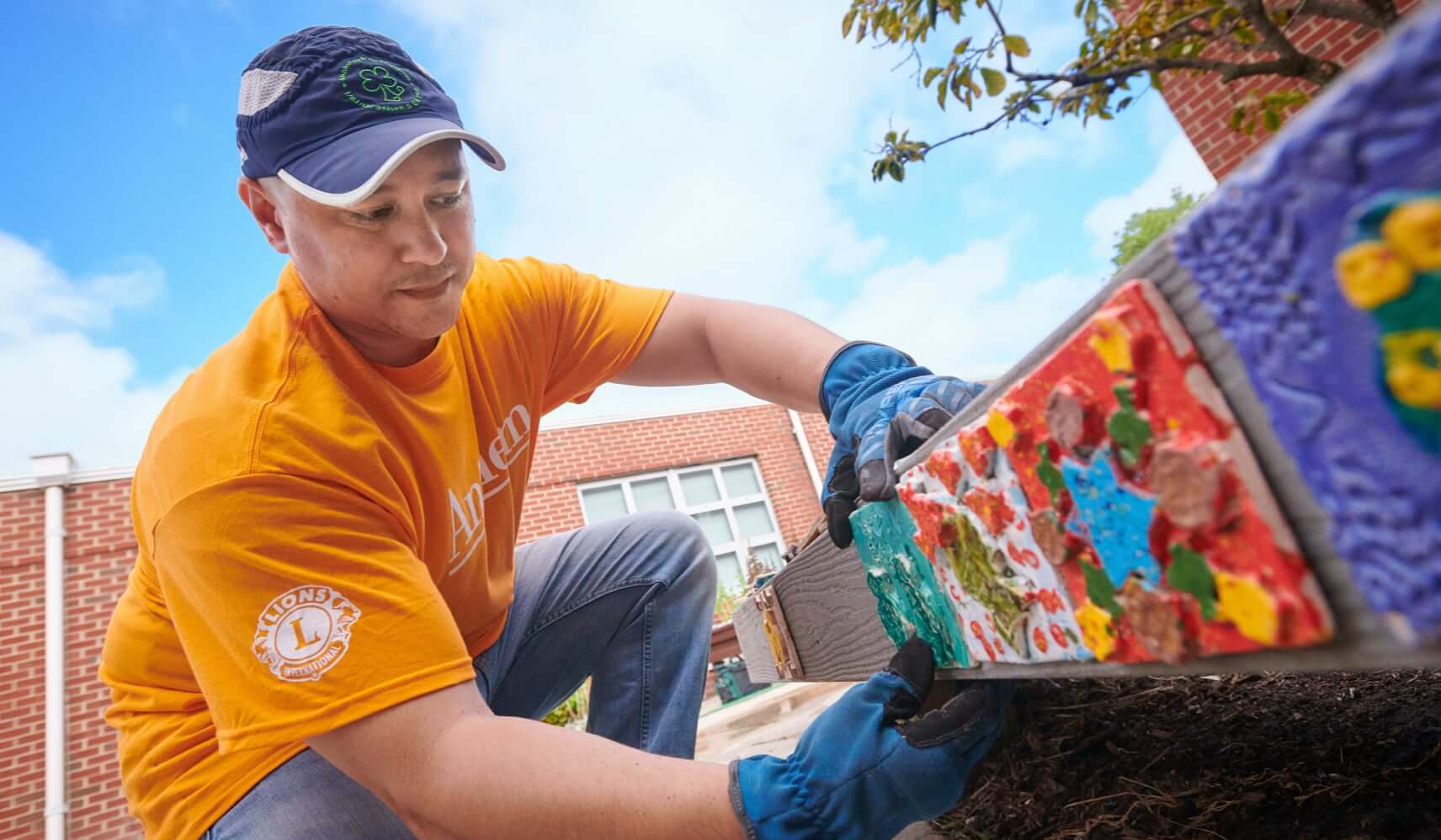As climate-related disasters like wildfires, flooding, and droughts increase in number and magnitude, some communities bear a disproportionate share of the disruption. Healthcare concerns can quickly become emergencies without the ability to access electricity or food, especially for people experiencing economic insecurity. As part of our commitment to creating a healthy and sustainable future, Anthem builds climate resiliency by preparing for and rapidly responding to immediate needs caused by natural disasters and reducing our greenhouse gas emissions.
Beyond the physical damage caused by climate-related disasters, these events can negatively affect mental health and well-being. People often need to evacuate their homes, making it difficult to access or refrigerate medications, leading to worsened health conditions. Anthem partners with community-based organizations to identify where help is needed most and contributes to building resilience when climate-related disasters occur.

An Anthem associate volunteers at a community rebuilding event.
Communities across the nation dealt with wildfires, tornadoes, and hurricanes in 2021. The hardship created when people are cut off from clean water and fresh food is compounded when people with chronic health conditions or disabilities can’t charge or use ventilators and other medical equipment and devices. In California, Kentucky, and Louisiana, Anthem worked closely with community-based organizations to secure battery-powered, portable power stations; and provide fuel for generators and ADA accessible shelters. Critical needs like water, baby formula, solar flashlights, phone chargers, and other household supplies were also provided to those in need.
Anthem supported members who were affected by climate disasters by removing administrative barriers, making it easy to refill prescriptions, replace durable medical equipment, obtain medical supplies, and access physical and behavioral healthcare services.
In addition to addressing immediate needs in the communities we serve, Anthem prioritizes sustainable practices and continually improves the climate resiliency of our business operations. It’s an important aspect of our goal to improve lives and communities.
Healthcare services can be energy intensive. From the equipment and materials used to manufacture medical devices to the large buildings open 24 hours a day, the health sector in the United States is responsible for an estimated 10% of national carbon emissions.* Anthem is the first U.S. health benefits company to join RE100, committing to using renewable energy sources for 100% of our power needs. In 2021, we met our commitment four years ahead of schedule by powering all our offices and data centers with energy purchased from solar power arrangements. Through this renewable energy procurement and other strategies, our combined scope 1 and 2 greenhouse gas emissions were decreased by nearly 90% compared to the baseline year, 2019.
Anthem was named to the 2021 Dow Jones Sustainability North America and World Indices (“DJSI”). This marks the fourth consecutive year Anthem has been recognized by the DJSI for leadership in sustainability.
In addition to RE100, Anthem Blue Cross and Blue Shield is a founding member of the Drawdown Georgia Business Compact. Facilitated by the Ray C. Anderson Center for Sustainable Business, the compact is a statewide business consortium aimed at achieving a just, prosperous, and sustainable transition towards net-zero carbon emissions in the state of Georgia by 2050. “As a founding member, Anthem Blue Cross and Blue Shield has demonstrated leadership in reducing their carbon footprint and encourage other members of Georgia’s business community to join in on this opportunity,” says John Lanier, Executive Director of the Ray C. Anderson Foundation and a founder of Drawdown Georgia. “Through their collective impact, Anthem Blue Cross and Blue Shield is helping to advance solutions that will positively impact Georgians across the state.”
Anthem recognizes the link between the environment and the health of the people and communities we serve. We will continue to support communities to prepare for and respond to disasters when they strike and find ways to build climate resiliency into our operations and business activities.